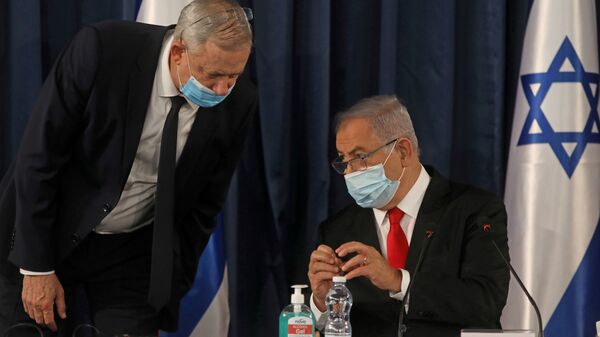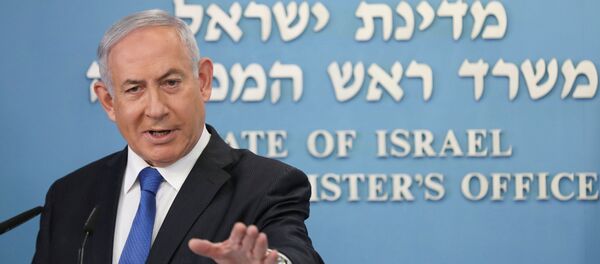Israeli Prime Minister Benjamin Netanyahu has said that he did not inform Defence Minister and Alternate Prime Minister Benny Gantz about peace negotiations with the UAE because he feared that the Blue and White Party might accidentally leak the information to the press, sparking an Iranian response.
“‘Let them know? I’ve been dealing with this for years,” Netanyahu said, speaking to Israel Hayom, when asked why he didn’t tell Gantz about the talks. “They’ve been here all of two months. That was the [coalition] agreement – maintain discretion, to prevent Iran and others from torpedoing it.”
Netanyahu clarified that he didn’t mean Gantz and Blue and White would leak the information to Iran personally, but that “they can speak with advisers and this information could get out.”
The current Likud/Blue and White unity government was cobbled together in May after three consecutive elections failed to allow either party or its allies to create a majority. On Monday, the Knesset’s finance committee voted to extend the budget deadline until December 3 to avoid a new election amid heated disagreements over the budget, which threaten to break the coalition government apart.
US Pressure
In the interview, Netanyahu also revealed that putting aside Israel’s plans to ‘apply sovereignty’ to large swathes of Palestinian territory in the West Bank was a condition of the UAE deal demanded of Israel by the United States.
“When [the Americans] asked me, upon the unveiling of the [Trump peace] plan and now, to put sovereignty on hold to facilitate the [UAE] treaty, they didn’t let me choose between them. They said that was their position. Therefore, if implementing sovereignty right now isn’t feasible and it has to be suspended for a period of time, it’s preferable that we at least get the peace treaty,” he said.
On Monday, Israeli President Reuven Rivlin invited UAE Crown Prince Mohamed Bin Zayed to visit Jerusalem in the wake of the peace deal reached Thursday.
The deal, formally dubbed the ‘Abraham Accord’, is expected to be formally signed in Washington sometime in the next three weeks, and will oblige the two countries to recognize and normalize relations with one another. Only two other nations in the Arab World have done so since Israel’s establishment in 1948 – Egypt and Jordan.
Other countries including Egypt, Bahrain, Oman and members of the European Union welcomed the idea. The Russian foreign ministry said the deal was positive in the sense that it will force Tel Aviv to put off its West Bank annexation plans.



